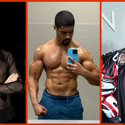 In a recent New York Times editorial, contributor Rich Benjamin explained why he would not be attending the wedding of his longtime friend Zachary and Zachary’s fiancée, Caroline.
In a recent New York Times editorial, contributor Rich Benjamin explained why he would not be attending the wedding of his longtime friend Zachary and Zachary’s fiancée, Caroline.
“Why should I financially subsidize and emotionally invest in a ritual that excludes me in all but five states (and the District of Columbia)?” asks Benjamin, before likening a queer person attending a straight wedding to a vegan attending a pig roast. Of his engaged friend (who supports same-sex marriage), Benjamin says Zachary “resents me for blowing off his special day, for putting political beliefs ahead of our friendship and for punishing him for others’ deeds.”
Sorry, Rich — I’m with the straight guy on this one.
First, using another person’s wedding as a soapbox for your political viewpoints is indeed tacky. It reeks of self-important grandstanding. From an etiquette point of view, if you can’t attend a wedding (for whatever reason), you send your regrets and a nice note, and then shut up. (In other words, it’s not about you.)
How about we take this to the next level?
Our newsletter is like a refreshing cocktail (or mocktail) of LGBTQ+ entertainment and pop culture, served up with a side of eye-candy.
Second, boycotting opposite-sex weddings seems to send the message (often touted by anti-equality folks) that we’re against “traditional marriage.” Benjamin got that all twisted here. We need to be showing everyone how much we’re a part of the family — and how much we love marriage.
Third, being cruel is no way to bring anyone around to you point of view. (After all, that’s what the other side does with their constant slanderous, mean-spirited attacks on gay people as human beings.) We need to be strengthening alliances, not shredding them. Benjamin’s behavior might very well ruin a friendship — and therefore put an end to other, better ways to get an ally to the polls or to spread a message. We have to stay engaged in dialogues with our friends and families — not hide in our rooms like sulky teens when we don’t get our way. Instead of finding a “teachable moment” here, Benjamin slammed a door.
Finally, it’s one couple’s wedding we’re talking about, not the institution of marriage. Benjamin opines that it’s “absurd to celebrate an institution that I am banned from in most of the country.” But he’s got that wrong, too. A wedding isn’t a celebration of an institution; it’s a celebration of love and commitment. And boycotting a wedding isn’t the same as boycotting a store or service with discriminatory policies. Each marriage — each wedding — in the end, belongs to the people in it, not to the government.
It’d be really nice (but it’s by no means compulsory) for a straight friend like Zachary to demonstrate that he is not taking for granted the fact that he is enjoying a right that others are denied. For instance, not narrow-straights might consider registering with an equal-marriage-rights organization along with the usual home-improvement stores. Or even making a public pro-equality statement somewhere along the road to matrimony.
And I would’ve liked Benjamin’s editorial a lot better if he’d found a positive outlet for his pro-equality passion. Did he even bother to ask Zachary for any of the above? Or he could have taken on the burden himself. Imagine if he’d said something like this: “Every time I get invited to a mixed-gender wedding, I decline and spend four hours volunteering for an equal-marriage-rights organization.” Instead, the only activism he describes here is throwing wedding invitations in the trash.
Not really effective, I’d say.
Back to the vegan-at-a-pig-roast analogy: As a vegetarian who is very much against the killing and eating of pigs, I can say that if a good friend invited me to a dinner centered around roast pork, of course I’d go — to enjoy my loved ones’ company. I’d just eat some trail mix before I left and then stick to the salad while everyone else got down with the carnitas. It’s nice (but not compulsory) for the host to put out a veggie option, but I didn’t come to eat — I came to nourish myself with human companionship.
When folks come to my house, they get squash (and maybe there’s a teachable moment). No need for a big fuss. It’s called meeting people halfway. It’s called “There’s a time and a place for everything.” It’s called teaching by example. And that’s good manners.
Charles Purdy is the author of the book Urban Etiquette: Modern Manners for the Modern Metropolis and a longtime manners-advice columnist. In his Queerty column, he addresses issues related to social behavior. Find him on Twitter: @charlesqueerty
photo submitted by gaycities member jclouser



















QJ201
Sorry, you are wrong. If a black person declined to go to a segregated event no one would expect them to put their friend’s feeling above the injustice.
I went to a dear friends wedding a few years ago specifically because she made it very clear to her queer friends in the invitations that she was on our side and specifically asked us to bring our partners to show our “love” to everyone. She and her groom made gay rights actually part of their vows: “We will honor our love by fighting to make sure all our friends have their love honored” Big cheers from all in attendance. They also insisted on no “gender segregation” on the throwing of the bouquet and garter and of course a guy caught the garter…and I caught the bouquet…talk about fun pictures.
Stupid
But what we’re talking about a wedding a gay person was invited to, by someone who supports equal rights. So how can you compare it to a segregated event?
Luke
It is incredibly rude of this homo to make his long time friend the object of a boycott because he has the “gall” to marry a woman. But seriously if he would just turn the wedding into a crucification Zachary should revoke his invitation and consider revoking his friendship! A number of my straight friends and family members have gotten hitched, and while I have always declined to be part of the wedding party I’ve also always wanted to help them celebrate!
Silly Queens
Boycotts never work
Wendy
I think you’ve missed the larger point – no matter how much you like you straight friends, wedding are boring and painful for gay people to endure. I haven’t gone to one in years and I am not likely to ever go to one again.
Stupid
A lot of straight people think weddings are boring too, that’s not a gay thing
And fine, stay home if weddings are boring to you … but don’t kid yourself that you’re making some huge political statement.
Sparky
I hate straight weddings and I have told all of my straight friends that i is impossible for me to go to a straight wedding and be happy and help celebrate while at the same moment confronting the very measure by which I am most discriminated against. Most of my friends completely understand. Those who don’t…..I don’t care about. If they cannot understand and experience my pain with me, why should I bother to experience and share their joy with them.
Shannon1981
Hell will freeze over before I willingly go to another straight wedding without having marriage equality- not civil unions, but MARRIAGE- in all 50 states. It just rubs salt in wounds and makes me angrier and more resentful than ever.
If the straight people can’t see why we hate this shit and be understanding, they aren’t our friends at all.
Wendy
@ Stupid – 1. appropriate name 2. Why so angry? Why should you care if I attend straight wedding or not? This is not some hugs political statement, this is an expression of my disdain for all of the traditions surrounding marriage. And please don’t kid yourself into thinking you’re making any sense.
Stupid
Jeez, relax Wendy. No one cares too much what you do, least of all me. I was commenting on the article mostly.
But I’m glad you like my name! I am sending you lots of love and a big rainbow hug across the Internet because I think you are awesome and I mean that.
Wendy
@ Stupid. It’s fun for me to watch people eat humble pie after they have been called out on their snark, which they can’t defend.
Stupid
Wendy, you are the best thing on the Internet, and don’t you forget it!
2+2chan
I herd a comedian say once: A straight person asking a gay person to attend a wedding is like a white person saying “Come watch me vote!” pre-civil rights. That’s how it feels to me, which is why I don’t attend weddings anymore.
tinkerbell
@2+2chan: i agree. people asking me to smile and come to their weddings SO KILLS ME. It would be akin to people inviting black folk in the 1920s deep south to an election celebration party for the racist Democratic South party of which they couldn’t vote.
I have self respect. I refuse to participate in an “institution” that discriminatory bigots have made all too clear I’m not worthy to take part in.
My dignity dictates I keep my head held high and not denigrate myself.
Caliban
The “inviting someone who can’t vote to watch you cast your ballot” analogy is a pretty good one, but I can see both sides of the issue. The whole “sour grapes” aspect of refusing to attend FRIENDS’ weddings is pretty bad though.
I’m tempted to pretend to adopt it though, just so I don’t have to go to any more weddings! God those things are awful, and the closer you are to the couple the worse it is! Then it’s not just the “event,” it’s the parties thrown for the couple, the bachelor/bachelorette party, the rehearsal dinner, and then you STILL have the friggin’ wedding! Ugh. And Bridezilla is NOT a myth in my experience. I’m sure some grooms are bad too, but JEEZ!
And you know what? As much I believe in and look forward to gay marriage, I am dreading gay WEDDINGS as much as I do straight ones. I hope gay people think first before making a production number out of the EVENT because that’s not what this is about, not what we’re fighting for. We’re fighting for all the mundane stuff that comes after, not so you get to do your “star turn” in front of a captive audience. And a few of my friends can make planning a dinner party sound like the landing at Normandy, so I shudder at the thought of them planning their wedding. A few of them have it in them to be a Groomzilla that would send even the worst brides running for cover. Stop. Think. Don’t!
delurker
Rich sounds like an insufferable little bitch. I love weddings, gay or straight, and I’ll always go if invited.
Cam
“”asks Benjamin, before likening a queer person attending a straight wedding to a vegan attending a pig roast.””
__________________________
That is actually not a functional comparision. Vegens dissagree with eating meat. This comparison would only work if the Vegens WANTED to eat meat but were not allowed to.
My friends are my friends, they vote for my rights, they have been with me throughout good and bad and I will damn will be there with them on their happy day.
Hyhybt
@Cam: AMEN!
Ritchie
Like a two-year old, the only thing Rich proves with his tantrum is that he doesn’t care about getting what he wants because he really wants it, he only wants it because someone has told him he can’t have it.
Why would you begrudge a friend who loves and supports you of the same thing you claim to want? It’s not Zach’s fault.
When the day comes (and I truly believe it will) that you are allowed to marry your partner, wouldn’t you like your friend Zach to be there? And, Zach, if you attend, you are a better friend than I am.
CJ
Like many people, I have mixed feelings about this. On one hand, I want to support my friends. On the other hands, it’d be great if they supported me. Being invited to their wedding (when I don’t have that right) is like a slap on the face to a little degree. Aren’t there many straights out there that refuse to get married until gay marriage is permitted?
Cam
@CJ:
But wouldn’t it also be a slap in the face if they didn’t invite you?
Hyhybt
Expecting your friends and family to refuse to marry is ridiculous. Acting as if their inviting you to what is, after all, essentially a celebration of their relationship and nobody else’s is somehow an insult to you because, were you to hold a similar celebration for your own, the government wouldn’t register it, is petty.
Letting them know you’re a bit jealous, though, they can take as a compliment 🙂
Admittedly, at the rate things are going, marriage will be legal even in Georgia before I have anyone *to* marry, so it’s not as big a worry for me as it may be to others. Nonetheless, I have two family members getting married this year (not to each other, of course, though *that* would be legal here if they weren’t both men) and am looking forward to celebrating both occasions. I wouldn’t even *think* of turning down an invitation, much less trying to make their day about me.
J.
Cultural amnesia. Gay marriage is ruining what it means to be gay.
jenn
@Shannon1981:
You can marry. Someone of the OPPOSITE SEX. Gary “marriage” is NOT marriage, and will never be.
Hyhybt
So… who is Gary, and why can he not be married?
Hyhybt
@J.: Being gay simply means being attracted to members of your own sex. That’s IT. Nothing more.
Stupid
Shannon, darling, calm down now. It’s clearly time for your medicine, you poor dear. When the doctor comes tomorrow you can tell him all about Gary and why you want to marry him. Shhhh now. Shhhhhhhh.
Troy Smythe
When my partner and I had our commitment ceremony I had friends and family who didn’t come because they didn’t agree with it at the time. It hurt. That was 8 years ago, and now they are a little farther along. Emotions color our decision making and it’s not always clear in the moment if we are right or wrong or both. I think both friends should respect each other where they are now and recognize that time can bring healing and understanding.